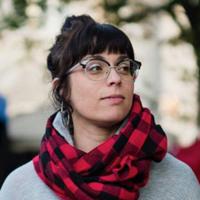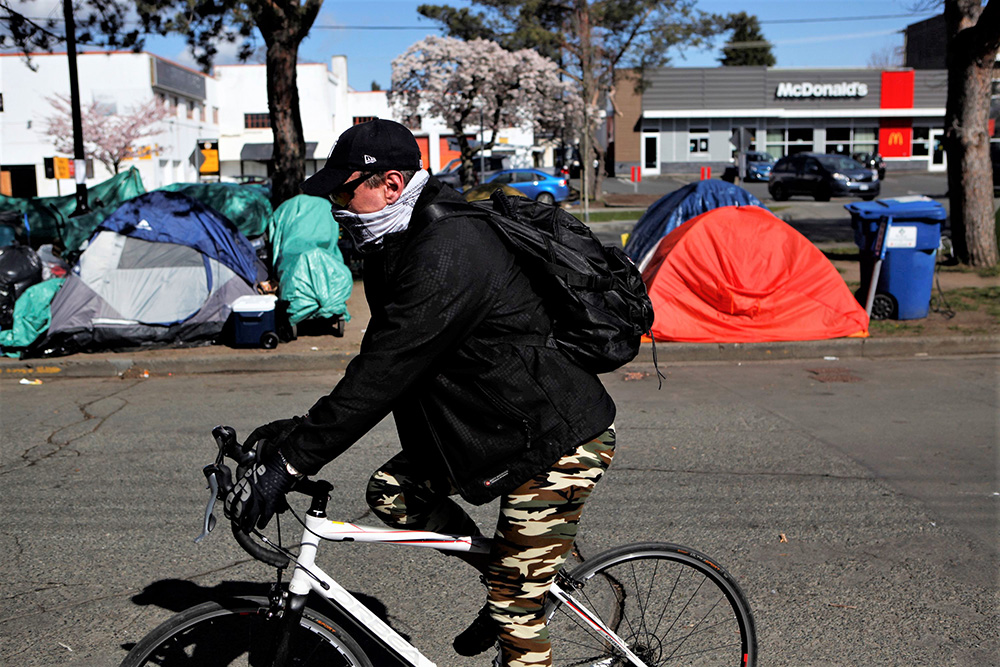The first case of COVID-19 in British Columbia was confirmed almost three months ago. Since then all eyes have been turned to this unfolding public health emergency.
But the province was already in the midst of an unprecedented public health emergency before COVID-19 — one that has taken the lives of more than 5,000 British Columbians in the last four years and brought a decrease in overall life expectancy in the province. The overdose crisis is not going away because of COVID-19.
In fact, it is getting worse.
Many cities across the country have been reporting spikes in overdoses and overdose deaths amid the COVID-19 pandemic. This is true for Vancouver and Victoria.
Three factors have contributed to this rise in overdoses and overdose deaths: reduction and closure of essential supervised consumption services; self-isolating requirements forcing people to use alone; and disruption of supply chains combined with the lack of access to a safe drug supply.
One of the most important measures the province can take now to address this dual public health emergency is to implement tailored safe supply programs that meet the needs of people who use drugs.
The B.C. government had four years to implement safe supply programs in response to the overdose crisis. These programs allow physicians and nurse practitioners to prescribe regulated substances such as opioids, stimulants and cannabis when caring for people who would otherwise have to turn to illicit, often toxic, sources.
But government didn’t act.
Now the province is dealing with a dual public health crisis combined with a long-lasting housing crisis that has left thousands homeless or unstably housed.
On March 27, the province introduced new safe supply guidelines developed by the BC Centre on Substance Use.
At the time of the announcement, frontline workers and people who use drugs were already sounding the alarm on rising overdoses and overdose deaths.
Four days later, on March 31, a group of Downtown Eastside frontline workers sent an open letter to Premier John Horgan, Health Minister Adrian Dix, Mental Health and Addictions Minister Judy Darcy, provincial health officer Dr. Bonnie Henry, Vancouver chief medical health officer Dr. Patricia Daly and Vancouver Mayor Kennedy Stewart.
They called for five immediate actions: provision of personal protective equipment for all frontline staff; reopening all supervised consumption services; expansion of shelter and housing supports; distribution of food and water to the community; and dispensing larger quantities of medications for people on opioid-replacement therapies while implementing safe supply for all substance users.
On April 1 Vancouver was reporting its first major spike in overdoses and overdose deaths since the beginning of the COVID-19 pandemic — including eight deaths in one week.
The next week, the city recorded another eight deaths, bringing the total to 16 deaths in 14 days.
During this period, concerns were rising in Victoria and frontline workers were already alerting the government and public health authorities of a coming spike in overdoses and overdose deaths. They feared safe supply would be implemented too slowly and worried about the logistics of launching safe supply programs that meet the needs of people who use drugs in the midst of the COVID-19 pandemic. Services were already disrupted. Some services were closed. Prescribers were hard to find.
On April 21 we learned that one person had died on Pandora Avenue in Victoria, where about 80 to 100 tents had been set up following radical disruption and closure of services to people who experience homelessness in Victoria. The death was not COVID-19 related.
Overdoses and overdose deaths were beginning to spike as predicted. Two days later two people were found dead at Topaz Park in Victoria where about 200 tents have been set up as part of the city's response to COVID-19. Staff started checking on residents every two hours. Bad dope alerts went out.
On April 26, Topaz Park staff responded to seven overdoses over the course of one shift, all of which required complex and prolonged resuscitation efforts. In the context of a viral respiratory pandemic, every overdose that requires this level of intervention poses a risk.
This brings me to my final point.
Over the weekend, the province announced that it was issuing a public safety order (not a public health order) to move people located on Pandora Avenue and Topaz Park to hotel rooms by May 9.
However, without proper consultation with people affected by this move, involvement of frontline workers and peers and immediate implementation of tailored safe supply programs, this order actually puts lives at risk. Displacing people and isolating them in hotel rooms knowing that the drug supply is toxic is a death sentence.
Safe supply not only prevents overdoses and overdose deaths, but it takes pressure off overworked, underpaid and under-resourced staff, many of whom are currently experiencing high levels of moral distress, stress and trauma.
Safe supply also decreases the risk of COVID-19 exposure and transmission.
In the context of a dual public health emergency, the province should be doing everything in its power to save lives. This starts by implementing immediate safe supply. ![]()
Read more: Health, Rights + Justice, Coronavirus, Housing
















Tyee Commenting Guidelines
Comments that violate guidelines risk being deleted, and violations may result in a temporary or permanent user ban. Maintain the spirit of good conversation to stay in the discussion.
*Please note The Tyee is not a forum for spreading misinformation about COVID-19, denying its existence or minimizing its risk to public health.
Do:
Do not: